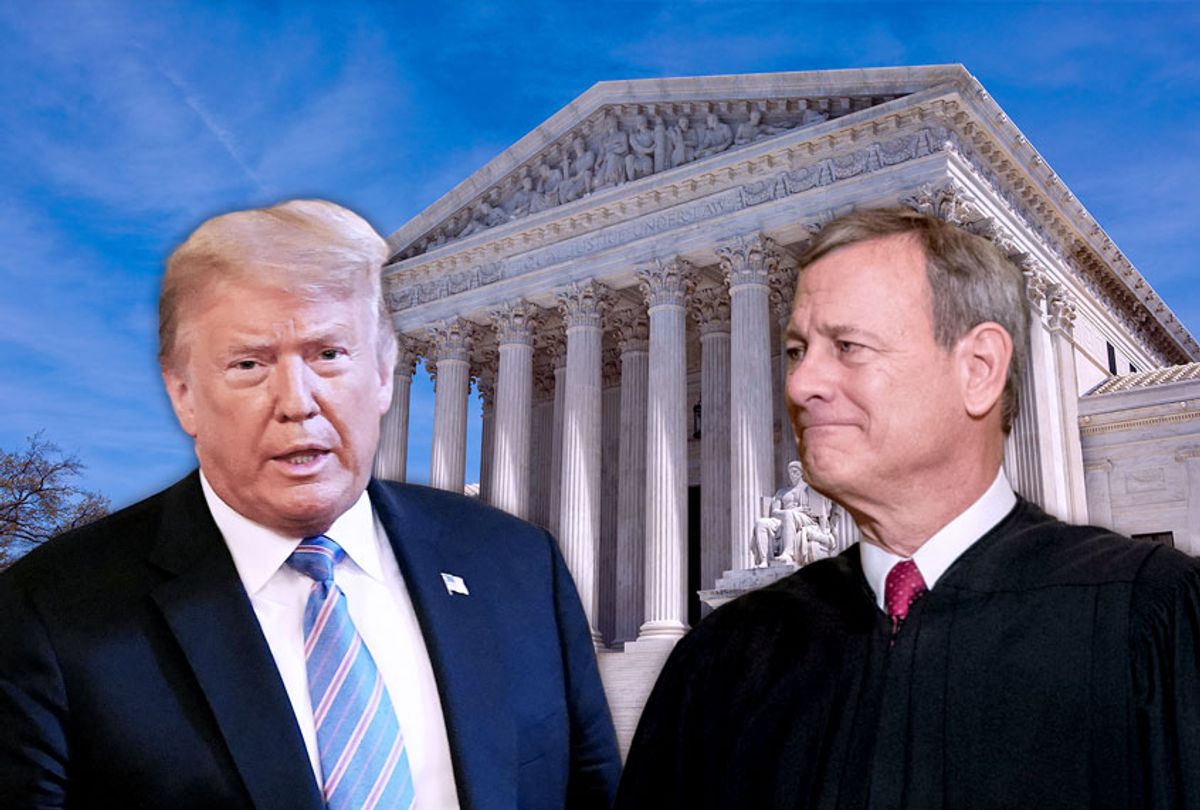With Jan. 6 case, the Supreme Court could take America down the dark road to dictatorship

With the Supreme Court granting certiorari to Donald Trump on his immunity claims regarding the January 6th trial in Washington, we have reached a historic moment. The high court will now review the lower court ruling that a former president isn’t immune from prosecution for crimes he committed in office. but not until April. If the court agrees with Trumphim, it could lead America down a dark road.
Yes, broadly exposing the president to lawsuits or prosecutions for the thousands of judgment calls a president makes in the line of duty would cripple the presidency. But no one prosecuting Trump claims presidents should be broadly exposed to liability for their official decisions. Instead, the issue is framed by the Supreme Court’s 1982 decision in Nixon v. Fitzgerald. It held that the president is immune from damages liability “for acts within ‘the outer perimeter’ of his official responsibility.” The court has never extended that limitation to the president’s responsibility for a crime. Moreover, the court has never suggested that a president who commits a crime unconnected to his official duties enjoys any immunity at all.
So, what should matter is whether the court believes it could be part of a president’s “official responsibilities” to engage in fraud, intimidation, and violence to overturn an election he lost at the polls. Trump thinks so. He claims he would be immune even if he used Seal Team Six to murder political opponents and that the only recourse against a president is impeachment and conviction—which he could avoid by hanging on to a mere third of the Senate.
The court should be careful. It’s already certain to overturn the Colorado ruling disqualifying Trump from the state ballot. That would at least have political—if not legal—heft behind it. It would make the Supreme Court seem modest about its powers and supportive of the people’s right to choose their leaders.
But if a favorable disqualification ruling were joined by a ruling for Trump on immunity, it would take a baleful bite out of the court’s already tattered reputation and the future of our democracy.
Absolute presidential immunity from criminal prosecution would be abominable, and it’s a good bet that a majority of the court will reject it. Yet if a single justice endorses this view—think Justice Thomas— it will place a scrim of acceptability in front of an abhorrent idea.
Trump’s view would effectively hand the president a dictatorship he could impose so long as he hung on to a small—likely hand-picked—faction of the Senate. Could we vote such a dictator out? Don’t bet on it. Wouldn’t that kind of president feel free to disregard our votes? Couldn’t we expect false claims of miscounts? Voting machines seized and votes suppressed? The sprouting of fraudulent electors?
Some might think that’s okay because they would be happy with Donald Trump as dictator, but how would they feel if Rep. Rashida Tlaib, D-Mich., got the job? They might, in fact, feel like violence, but then they should get ready for political violence to become the only route to the presidency. Violence that disrupts every community. No Dunkin, no Starbucks, no Denny’s. No trash pickup. Closed schools. Canceled ball games—all while someone “representing our values” tries to kill their way to the presidency.
Absolute presidential immunity from criminal prosecution would be abominable, and it’s a good bet that a majority of the Court will reject it. Yet if a single justice endorses this view—think Justice Thomas— it will place a scrim of acceptability in front of an abhorrent idea. If a majority of justices gets within a country mile of it, the court could take America down the dark road to a dictatorship presided over by a predatory president and perpetuated by a cabal of 33 Senators who might represent only 16 states out of 50 and just 33 members of Congress out of 535.
As the court has said in the past, it must step lightly in this area, weighing the constitutional value at stake against the danger of trampling needed presidential powers. In the case of Donald Trump, that means ruling that whatever immunity protects the president, trying to hold onto power by fraud or force threatens matters of the highest constitutional importance while trampling no power we should ever want a president to have. If it adopts this narrow interpretation, the Court could thump Trump rather than the future of democracy.
Read more
about this topic


